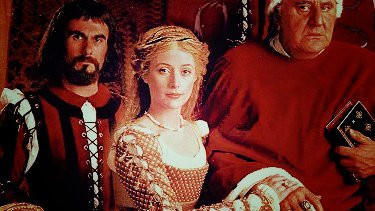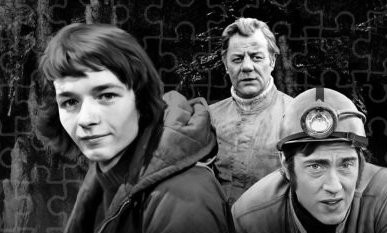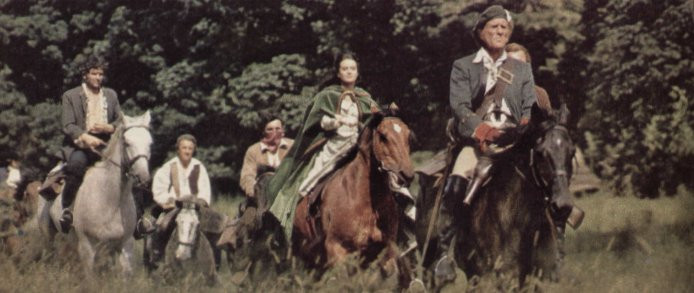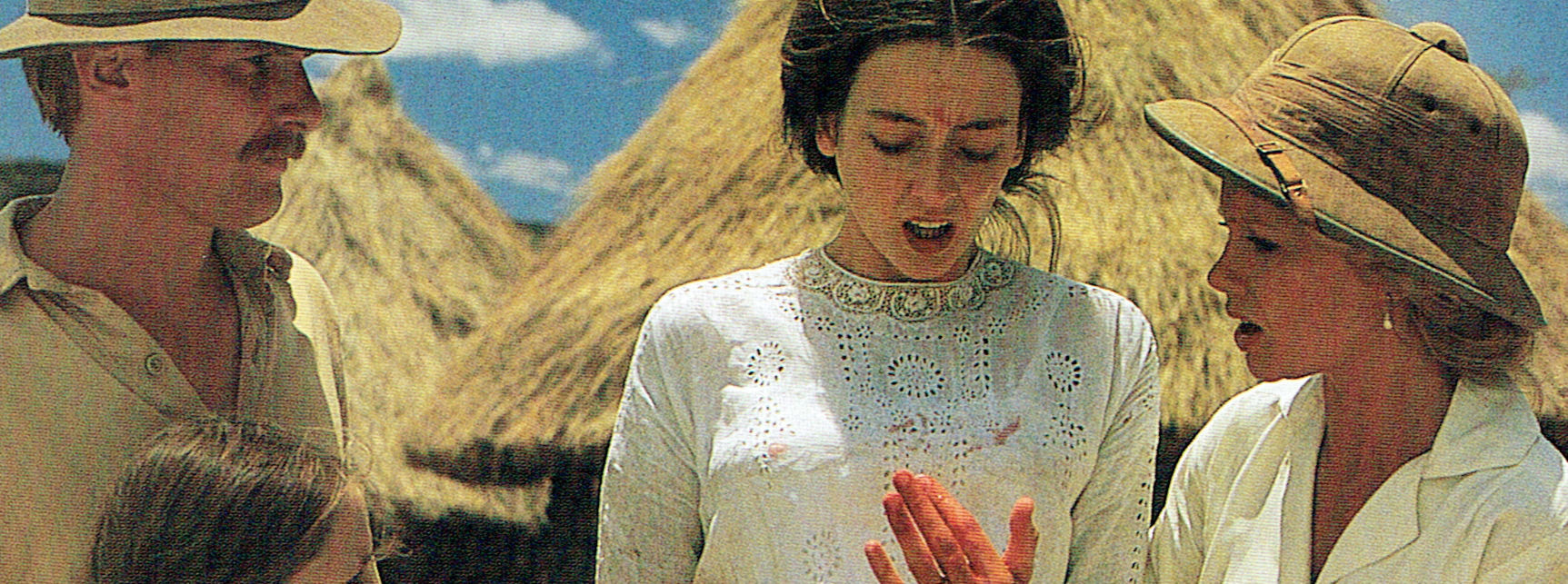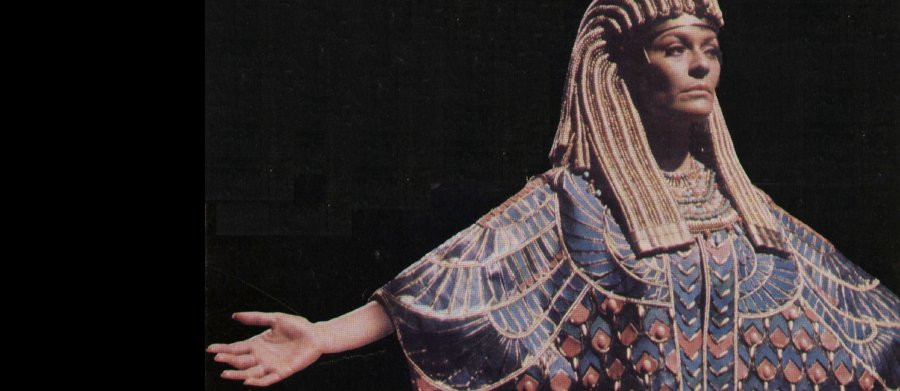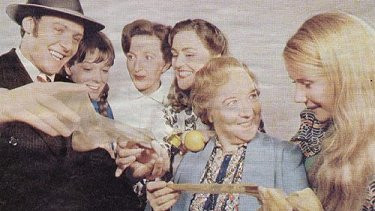
Jenny - Lady Randolph Churchill
1974 - United KingdomOn 30 November 1874, the 20-year old Brooklyn-born wife of a lesser English Lord gave birth to her first child, whom she named Winston. The boy grew up to be the man who was voted in a millennium poll as the ‘Greatest Englishman Ever’. But of his mother, Jennie, a Prime Minister’s wife once wrote: "She could have governed the world". Winston Churchill said later still, "She shone for me like the evening star." Who she was, and the extraordinary story of her life, her three marriages, and her many loves, became the subject of Jennie, Lady Randolph Churchill, a lavish seven-part dramatisation by Thames Television starring Lee Remick in the title role.
Produced to coincide with the celebrations to mark the centenary of Churchill’s birth, this series focused on the life of his mother, an American born on January 9th 1854 in Brooklyn into a wealthy family. The young Jennie Jerome grew up in a privileged environment; oblivious to the American Civil War, (although she did remember the house being draped in black when Abraham Lincoln was assassinated when she was 11-years old), her father didn't deny her any of lifes luxuries even going as far as hiring a friend of Chopin to teach her piano and the greatest singers and entertainers of the day visited the house to perform in the Jerome’s private theatre.
In 1870 Jennie moved to Europe. Her mother had grown tired of her father’s pace and many love affairs, preferring the elite society of Paris. In 1873 Jennie visited Cowes, on the Isle of Wight, at the invitation of the Prince of Wales, who had come to visit and take part in the yacht racing that became a traditional relaxation for the fashionable set of British society following the rigours of London. Albert Edward, Prince of Wales, had a reputation for fast living, overeating, gambling, fishing and making love.
Inevitably he surrounded himself with people of similar tastes and among his friends were the Marlborough House Set; the sons of the Duke of Marlborough -the Marquess of Blandford and Lord Randolph Churchill. It was at Cowes that Churchill was introduced to Jennie and her sister Clara. Jennie was 19, more beautiful than her fair-haired elder sister; she was dark, with shining eyes. After their initial meeting, Randolph confided in a friend that he meant to try and marry "the dark one."
The attraction was obviously mutual because a mere two days and two dates later, Randolph proposed to Jennie and she accepted. The couple were married in the chapel of the British Embassy in Paris and on a spring day in May 1874, Randolph bought Jennie to Blenheim Palace to live. She never took to Blenheim and would visit as little as possible preferring to stay in London where she was an immediate success. With her father’s sparkle, her strikingly beautiful looks and her love of the society set, she became a firm favourite. But it was to Blenheim that she returned after seven months of marriage to give birth to the first of her two sons some two months prematurely.
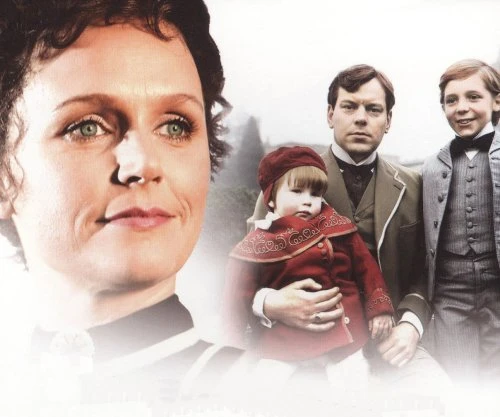
The seven episodes of Jennie, Lady Randolph Churchill followed the life and loves of Jennie as she finds herself and her husband drawn into a disastrous social scandal, ostracised and sent to Ireland where Jennie throws her full energy into supporting her husband, electioneering, canvassing, knocking on doors and organising political meetings and becoming the founder of the Primrose League, a grass roots Tory association, which attracted two million members.
Eventually seeing the couple return to England with Randolph’s power and prestige increased until, following a rift of eight years, the Prince of Wales decides to invite the Churchill’s back into his circle and Jennie assumes her place as one of the foremost women in the country. She becomes one of the most widely photographed women in Britain and her beauty becomes almost legendary. But just as her life appears to be entering a golden-phase disaster strikes once again. Randolph, increasingly involved with his career to the neglect of his marriage, becomes unpredictable and develops a violent temper. But the reason is far more sinister than just ruthless ambition.
Randolph is suffering from syphilis, which he probably contracted when he was a student. As the marriage begins to fall apart, Jennie becomes the subject of gossip; rumours of her love affairs link her to everyone from the Prince of Wales downwards. On the death of her husband Jennie is left bankrupt and embarks on a new life. Her political ambitions are now centred on her son, Winston, and she uses her social influence, pulls strings with diplomats and generals and carefully helps his education introducing him to the right people and paving the way for his career by way of the Army, then journalism and ultimately, politics.
This sumptuous costume drama from Thames Television was written by Julian Mitchell with full cooperation from the surviving Churchill family who allowed him access to private papers. He did an immense amount of research before embarking on the script and several of the character speeches he took from their original letters to Jennie Churchill. "I talked to Lady Churchill" he wrote in 1974, "but, of course, she didn’t marry Winston until 1908 and by that time Jennie was 54." Jennie kept private diaries and Mitchell was also allowed to read these. "I’m the first person to have gone through the whole lot. All the interesting periods of her life are covered. A great many love letters to her, and all of hers to Randolph are preserved." Mitchell also used Jennie’s autobiography, written in 1907, but found that Jennie was inclined to romanticise: for example, she wrote that she was born in Trieste instead of Brooklyn.
The series was a study of a woman who was as remarkable as the times she lived in: from the American Civil War to Crimea, from a Europe dominated by the splendid courts of Kings and Queens to the dawning of the dark dictators. It is a story of the magic and fascination of a singularly determined woman who, having narrowly failed to secure her husbands place at the head of government, set out to mould the future of her son. A son who would go on to be regarded as the greatest Briton of all time.
Seen this show? How do you rate it?
Seen this show? How do you rate it?
Published on December 25th, 2018. Adapted from 'The Life and Loves of Jennie Churchill' published in 1974 by Independent Television Publications Ltd. to tie in with the TV series..



